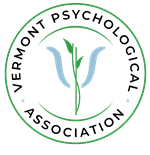Firearm Injury Prevention for Behavioral Health Providers
- Topic Areas:
- Healthcare Professionals | Lethal Means | Violence & Violence Prevention
- Categories:
- Pre-Recorded Homestudy
- Speaker:
- Dr. Jennifer West
- Course Levels:
- Introductory
- Duration:
- 1 Hour 51 Minutes
- Format:
- Audio and Video
- License:
- Never Expires.
Producer: New Hampshire Psychological Association
Description
This training will: 1) provide information on firearm injury and firearm ownership that frames the need for behavioral health providers to address firearm injury prevention with clients and their families across the lifespan; 2) provide guidance on how to have conversations asking about firearms in the home and how to provide counseling on firearm injury prevention harm reduction strategies with video examples, and; 3) include time for participants to practice having conversations with clients about firearm injury prevention.
Credits
Vermont
2 CE Credits
The Vermont Psychological Association is approved by the American Psychological Association to sponsor continuing education for psychologists, and is also approved by the Vermont Board of Psychological Examiners to sponsor continuing education for psychologists licensed in Vermont. This course is intended to qualify for specialty mandated credit types as follows:
Ethics: 0
Cultural Competency: 0
Continuing education courses sponsored by the Vermont Psychological Association are pre-approved by the Vermont Office of Professional Regulation for continuing education credit for licensed independent clinical social workers in Vermont. This course is intended to qualify for the following specialty mandated credit types;
Ethics: 0
Cultural Competency: 0
Continuing education courses sponsored by the Vermont Psychological Association are pre-approved by the Vermont Board of Allied Mental Health for continuing education credit for licensed clinical mental health counselors and licensed marriage and family therapists in Vermont. This course is intended to qualify for the following specialty mandated credit types:
Ethics: 0
Cultural Competency: 0
Connecticut
2 CE Credits
The Vermont Psychological Association is approved by the American Psychological Association to sponsor continuing education for psychologists. The Connecticut accepts these credits for continuing education for psychologists in Connecticut pursuant to Conn. Gen. Stat. § 20-191c(b). This course is intended to qualify for specialty mandated credit types as follows:
Veterans' Mental Health: 0
The Vermont Psychological Association is approved by the American Psychological Association to sponsor continuing educaiton for psychologists. Based on this approval, this course is pre-approved for credit for Connecticut licensed professional counselors under Conn. Agencies Regs § 20-195cc-3(a)(1). This course is intended to qualify for mandated credit types as follows:
Ethics: 0
Veterans' Mental Health: 0
New Hampshire
2 CE Credits
The Vermont Psychological Association is approved by the American Psychological Association to sponsor live continuing education for psychologists. The New Hampshire Board of Psychologists accepts credits earned from courses sponsored by APA-approved sponsors as indicated in Psyc § 402.01(d)(11). This course is intended to qualify for specialty mandated credit types as follows:
Ethics: 0
The Vermont Psychological Association is approved by the American Psychological Association to offer continuing education to psychologists. As a course sponosred by an organization with such approval, these credits are also accepted by the New Hampshire Board of Mental Health Practice for clinical social workers licensed in New Hampshire, as provided in Mhp 402.02(b)(1). This course is intended to qualify for the following specialty mandated credits:
Ethics: 0
Suicide Prevention: 0
The Vermont Psychological Association is approved by the American Psychological Association to offer continuing education to psychologists. As a course sponosred by an organization with such approval, these credits are also accepted by the New Hampshire Board of Mental Health Practice for clinical mental health counselors licensed in New Hampshire, as provided in Mhp 402.02(b)(1). This course is intended to qualify for the following specialty mandated credits:
Ethics: 0
Suicide Prevention: 0
The Vermont Psychological Association is approved by the American Psychological Association to offer continuing education for psychologists. As a course sponosred by an organization with such approval, these credits are also accepted by the New Hampshire Board of Mental Health Practice for marriage and family therapists; pastoral psychotherapists; and school social workers licensed in New Hampshire, as provided in Mhp 402.02(b)(1). The course is intended to qualify for the following specialty mandated credit types:
Ethics: 0
Suicide Prevention: 0
Other States Accepting Credits from APA-Approved Sponsors
2 CE Credits
The Vermont Psychological Association is approved by the American Psychological Association to sponsor live continuing education for psychologists. The Vermont Psychological Association maintains responsibility for its programs and their content. Psychologists and other professionals licensed in states whose respective licensing boards approve continuing education offered by APA-approved sponsors may earn continuing education credits for this course.

The New Hampshire Psychological Association is approved by the American Psychological Association to sponsor continuing education for psychologists. The New Hampshire Psychological Association maintains responsibility for this course and its content.
Completion of this course earns 2 continuing education credits. Psychologists licensed in states which approve courses sponsored by APA-approved sponsors may earn homestudy continuing education credit for taking this course.
Handouts
| Firearm Safety Slides (28.6 MB) | Available after Purchase | ||
Speaker
Dr. Jennifer West Related Seminars and Products
Dr. West is co-director of the University of Rochester Firearm Injury Prevention Program. The mission of this program is to significantly reduce the incidence of injury and death due to firearms (assaults/homicides, suicide, unintentional injury/death) in the Rochester region through prevention, intervention, education, and research informed by and in partnership with community members. Dr. West's research is focused on using innovative educational methodology, particularly simulation (standardized patients), to train providers and other interventionists. She was a co-PI on a randomized controlled trial focused on the use of simulation (standardized patients) for suicide prevention training for providers in primary care. In 2020, Dr. West developed a project focused on improving behavioral healthcare providers' knowledge and skills in firearm injury prevention and presented the findings at the National Research Conference on Firearm Injury Prevention.
Dr. West is an educational leader in the Departments of Psychiatry and Pediatrics at the University of Rochester Medical Center and the Director of Clinical Psychology Training (doctoral internship and postdoctoral fellowship programs) Shehas been the director of the Child and Adolescent Doctoral Internship Track since 2007. Dr. West has received awards for Excellence in Teaching and for Psychotherapy Education in the Department of Psychiatry. In 2017 she received the Genesee Valley Psychological Association Outstanding Psychologist Award. Dr. West has been a presenter at several meetings of the Association of Psychology Postdoctoral and Internship Centers and has led many initiatives in the psychology training program focused on DEIJ. Dr. West also teaches in the behavioral health seminar in the Pediatric Dentistry Residency program at the Eastman Institute for Oral Health.
Course Objectives
Objective 1List at least three reasons why asking about firearms is important.
Objective 2
Apply knowledge about demographic risk factors for firearm injury to clinical decision making about whether to ask about the presence of firearms in the homes of patients.
Objective 3
Describe at least three types of firearms and their differences.
Objective 4
Specify options for safe storage of firearms and other harm reduction strategies.
Objective 5
Practice how to ask about the presence of firearm arms in the homes of patients.
Objective 6
Develop a plan for counseling patients and/or family members about harm reduction associated with firearm storage.



